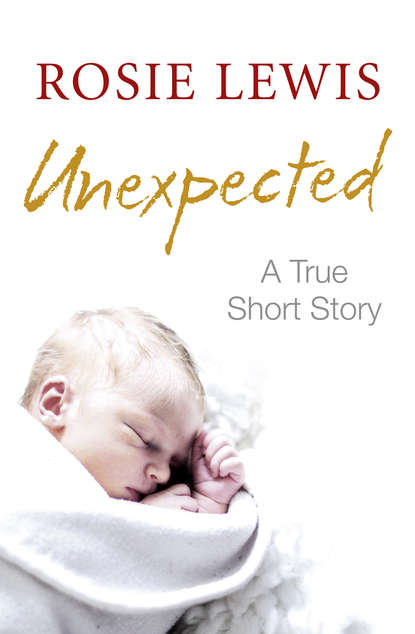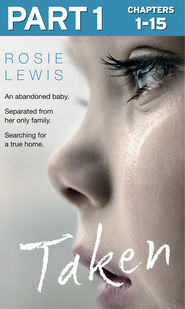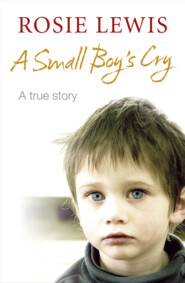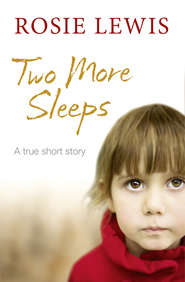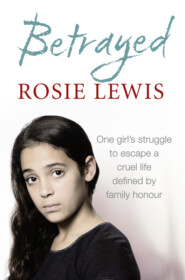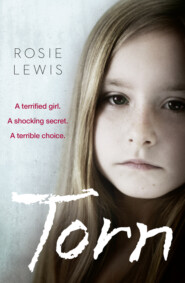По всем вопросам обращайтесь на: info@litportal.ru
(©) 2003-2024.
✖
Unexpected: A True Short Story
Настройки чтения
Размер шрифта
Высота строк
Поля
‘Goodness, what a shock,’ I said, setting aside the vests and sleep suits and then patting my hands on my lap. By then I was itching for a cuddle.
‘Exactly. How d’you get your head round something like that?’ She leaned over until her head was level with the base of the transparent crib. ‘Ciara just can’t imagine how,’ she said, moving her head exaggeratedly from side to side. ‘Oh no she can’t.’
I blew out my cheeks and we shared a baffled look. ‘And there’s still no word from her?’
Ciara moistened some cotton wool in a pot of water and then spun on clumpy heels so that her face was close to mine. ‘The police managed to find her. They called Sister about an hour ago,’ she said, her voice low again. ‘She’s been assessed by a psychiatrist and it seems the shock of the birth has triggered some sort of post-natal post-traumatic stress disorder – I’ve seen it myself after difficult births. Some women are so traumatised by labour that they find it difficult to form an attachment to the baby. What I can’t understand is how she managed to stagger out of here so quickly afterwards.’ Ciara shuddered as she straightened. ‘Makes your eyes water just thinking about it. Anyway, about the hep B – you’ll need to make sure you and your children are protected.’
‘Oh dear, that’ll please them,’ I said with a mock grimace. Inoculation against hepatitis B was one of the requirements of registering as a foster carer, so I was covered, but since my own children were uninvolved in the intimate care of others, our GP had advised that they wouldn’t need the vaccination. With a newborn in the house, though, I realised that I might need to reconsider his advice. It was going to be near impossible to keep eleven-year-old Emily and her eight-year-old brother Jamie away from Hope – they adored babies.
Ciara returned her attention to Hope, reaching into the incubator and releasing the tabs of her tiny nappy. Casually rough as only the expertly capable can be, the midwife grasped the infant’s ankles between splayed fingers and hoisted them into the air, snatching the soiled nappy away with the other hand. I marvelled at her practised movements as she dabbed Hope’s tiny bottom with the pad and then manoeuvred a fresh nappy between an assortment of fine tubes and wires, and I became aware that one of the mothers across the ward had fixed her gaze on me.
The young woman was seated on a rocking chair beside a wide incubator, her twin babies tucked beneath the long baggy jumper she wore. Their identical domed heads were nestled face to face beneath her chin, so still that from across the room she appeared to be cuddling a pair of life-like porcelain dolls. I met her inquisitive gaze with a smile and she asked: ‘How’s Hope doing today?’ I suspected that she was wondering who I was and why the baby beside me had waited so long for her first visitor to arrive.
‘She’s doing well, I think,’ I answered, before tilting my head to indicate her own babies. ‘They look comfy there.’
She smiled proudly and resumed her rocking, the slight puzzlement remaining in her eyes as she went slowly to and fro. Hope’s sudden appearance had made the local papers, but somehow the hospital had managed to prevent the news of her abandonment being leaked to the press. I wasn’t sure how much the midwives had told the other mothers about the case and, as with any foster placement, the details were confidential. Most people were naturally curious and I was still perfecting a polite but firm response whenever anyone asked about children in my care.
‘Right, are you ready for her?’ Ciara asked, having disposed of the old nappy, removed her gloves and washed her hands.
‘Absolutely,’ I said with a nervous smile, my stomach performing an excited somersault. It had been a while since I’d held a newborn, especially one as tiny as Hope.
Ciara effortlessly gathered several transparent tubes into a bundle and, clutching them in one hand, scooped Hope up with the other. She set the baby carefully in my waiting arms and covered her with several blankets, tucking them right up to her chin. Hope stirred, her tiny features twisting in protest at the change. Bundling her up in the blankets, I eased her onto my shoulder, careful not to dislodge the fine tube taped to one of her nostrils. Amazed at her kitten-like weight, I rubbed small circular movements over her back with the pads of two fingers, my heart melting as her warmth seeped into my chest.
Straight away she relaxed, her body falling slack against mine. After a few moments I transferred her to the crook of my arm and adjusted the blankets around her, taking in her small features for the first time. Her lashes were almost invisible so that her eyes, closed in a tight line, appeared as fine slits, as if they had been painted on. The skin around them was mottled with faint, uneven patches of blue, her eyebrows barely there. ‘She’s beautiful,’ I whispered to Ciara without glancing up. I liked to think of myself as open-minded enough not to make snap judgements, but at that moment it was difficult to comprehend the wilful abandonment of a helpless baby.
My thoughts began drifting towards her birth mother when the regular, pulsating beeps of the nearby monitor became an insistent wail. ‘What is it? What’s wrong?’ I looked at Ciara with wide eyes.
‘It’s OK,’ she smiled, resetting the alarm with the flick of a switch. ‘The monitor’s picking up on her altered breathing, that’s all. Nothing to worry about.’
I clapped a hand to my chest and let out a breath, struck by the depth of Hope’s vulnerability. Suddenly it was scary to think that I would soon assume sole responsibility for her wellbeing. Could the unexpected arrival of someone so fragile be enough to tip a person into some sort of psychosis, I wondered, as I cradled the newborn in my arms.
It wasn’t until much later that I began to suspect there was more to Hope’s abandonment than any of us realised.
‘Ignore the mess,’ I said as I led Ellen through the hall. It was Monday of the half-term holidays, and although Hope had been home from hospital for ten days, this was her mother’s first contact since she had given birth. I still hadn’t cleared away the breakfast things, and there was what could only be described as stuff strewn across almost every surface in the living room. Hope’s padded changing mat was balanced on top of Emily’s giant doll’s house, the sofa was littered with Jamie’s shin pads and football socks, and the new baby clothes I had ordered online were piled up in the middle of our coffee table, like some way-out arty centrepiece.
‘Would you like a cup of tea or something?’ I asked, contravening one of the first rules of contact in the foster home. Social workers regularly warned against making home visits too comfortable, as accommodating foster carers sometimes find themselves at the beck and call of demanding birth parents with a penchant for bacon butties and sugary tea.
I’ll never forget visits from one young mother, who would mumble a gruff hello as she plodded past me to the sofa, barely glancing in her toddler’s direction. Halfway through one session she withdrew a Thermos flask full of chipolata sausages from her mucky rucksack and proceeded to chomp on them two at a time, head tilted backwards for faster swallowing.
Grudgingly impressed that she’d bothered to cook her own snacks (neglecting to provide food was one of the reasons her little one had been removed from home), I commented on her resourcefulness. ‘S’easy,’ she shrugged, still dressed in pyjamas; she didn’t seem to feel it necessary to dress before leaving the house. ‘Marks do bangers ready cooked. I just stick ’em in the zinger for a couple a secs and that’s it. Done.’
Unable to resist, I asked her if her son liked them as well. ‘Oh, God, I don’t give ’em to him. He eats them frankfurter thingies that come in a jar. Has ’em cold. I wouldn’t eat that crap, personally,’ she’d added with a righteous shudder. What had surprised me most of all, though, was her reply when her toddler asked to participate in her feast. ‘Na,’ she’d said, shooing him away with greasy fingers. ‘Ask Rosie for summat.’
In Ellen’s case I couldn’t help myself, though. Her skin was as white as paper and there was a bluish tinge around her chapped lips – a telltale sign that she’d been walking around in the cold for a long time, perhaps trying to summon the courage to visit. It may have been instinct, or the glint of terror in her eyes, but something told me she needed a minute or two to gather herself before being reunited with her baby.
The picture of her floating around in my mind over the past week had been way off beam. I had imagined a frame heavy enough to disguise a pregnancy, along with hardened features and an impassive, callous nature. In the flesh, Ellen was of small build, wiry even, in her slim-fitting jeans and cable-knit jumper. She had a pleasant face, although a pained expression tightened her small features. I almost wanted to reach out and give her a hug.
There was no visible sign of her recent pregnancy either, not even a hint of the stubborn mummy tummy that still stalked me eight years after leaving the labour ward. I had heard of surprise births before, but with Ellen’s build it was almost impossible to believe that she hadn’t known she was pregnant, unless of course she had wilfully chosen to ignore it – it was amazing what people were capable of overlooking, if they truly wanted to.
Вы ознакомились с фрагментом книги.
Приобретайте полный текст книги у нашего партнера:
Приобретайте полный текст книги у нашего партнера:





